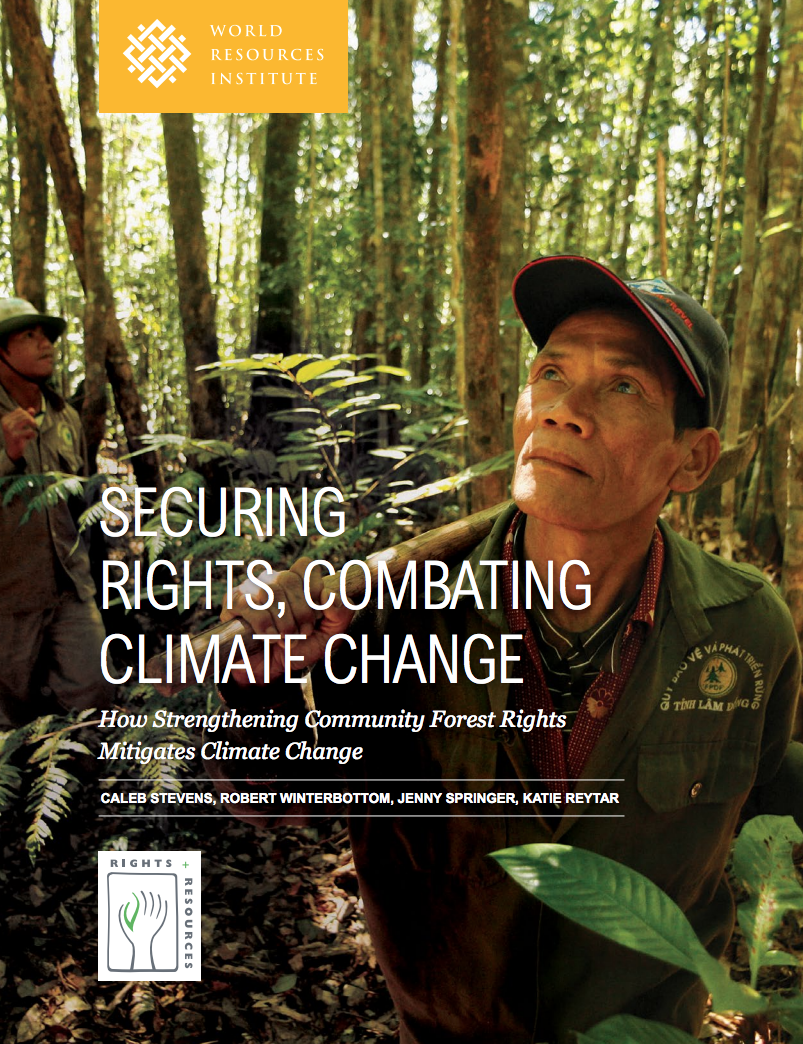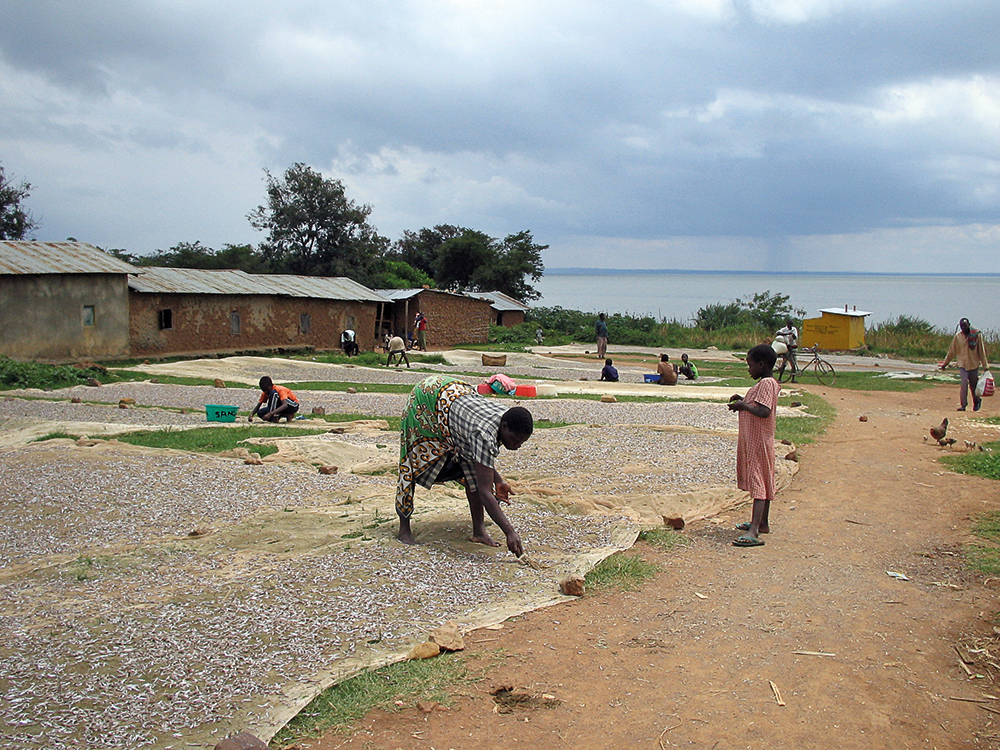Uganda Sustainable Land Management : Public Expenditure Review
Rural Development - Rural Land Policies for Poverty Reduction Environmental Economics and Policies Communities and Human Settlements - Land Use and Policies Rural Development - Forestry Agricultural Knowledge and Information Systems Environment Agriculture
Securing Rights, Combating Climate Change
With deforestation and other land uses accounting for 11 percent of annual global greenhouse gas emissions, the international community agrees on the need to address deforestation as an important component of climate change. Community forests represent a vital opportunity to curbing climate change that has been undervalued. Today communities have legal or official rights to at least 513 million hectares of forests, only about one eighth of the world’s total, comprising 37.7 billion tonnes of carbon.
Managing Urban Wellbeing in Rural Areas: The Potential Role of Online Communities to Improve the Financing and Governance of Highly Valued Nature Areas
The urban and the rural are increasingly interconnected. Rural areas have become places of consumption, as leisure and recreation have become important functions of rural areas. There are also indications that increased urbanisation even leads to a stronger appreciation of green areas situated far beyond city limits. Rural areas with their highly valued natural amenities nowadays seem increasingly to host urban wellbeing, given the positive relation found between green areas and human wellbeing.
Trade-offs between high class land and development: Recent and future pressures on Auckland's valuable soil resources
Sustainable land management is essential to meeting the global challenge of securing soil and water resources that can support an ever increasing population. In Auckland, New Zealand's largest city, population growth is forecast to increase from 1.5 to 2.5 million by 2040 which will put immense pressure on the region's soil resources.
What is so special about family farms?
Family farms are especially well suited to meet the challenges of labour organisation in agriculture. In early stages of development, they play a particularly important role in creating productive employment for the major share of the population. Moreover, they have strong incentives to use their resources sustainably so as to pass them on to future generations. Yet, family farms should not be romanticised. Often, they only survive by working longer hours and accepting lower incomes than people employed in other sectors of the economy.
Strenghthening family farms in Mercosur
For a long time, the agricultural policies of the Mercosur states ignored family farming, focusing on promoting individual crops and export production instead. Rural development was not on the agenda. Only after the turn of the millennium did a process of rethinking set in.
Agricultural biodiversity: the foundation of resilient family farms
In a world of rapidly changing conditions, enhancing the adaptability and hence the resilience of family farms is crucial to their viability. Here, diversity plays an important role, as the following article demonstrates.
Tangible sustainability
Family farms are often associated with greater sustainability. But the definition of sustainability is a highly disputable topic. The School of Agricultural, Forest and Food Sciences (HAFL) in Switzerland has developed a method enabling a more objective evaluation of sustainability in agriculture. Response-Inducing Sustainability Evaluation (RISE) covers ten sustainability indicators and supplies the foundation for agricultural advice.
Integrated Watershed Management – an approach with a number of stumbling-blocks
Integrated Watershed Management represents an option for the management of water catchment areas. However, what may sound good in theory often proves to be very difficult when it comes to practical implementation, as an example from the Lower Mekong Region shows.
Rebuilding soil natural capital
Throughout the world, demands on finite soil resources are ever increasing, and can lead to irreversible soil degradation, as the soil is used beyond its “bio-capacity”. A quarter of the inhabitated land area has already been affected by human-induced soil degradation. Against this background, soil remediaton is becoming more and more important. Focusing on the rehabilitation of oil-contaminated soil in Kuwait, the following article shows how it works, and where the problems lie
DIRECTIVES VOLONTAIRES SUR LE SUIVI DES FORÊTS
Meeting Name: Committee on Forestry
Meeting symbol/code: COFO/2014/6.3








